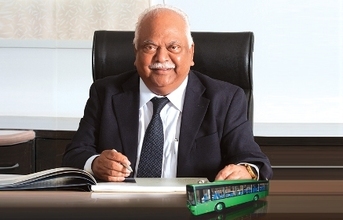
Aware that buses manufactured by Deccan Auto will be competing with some of the well established Indian and international brands, Prasad has also paid good attention to the R&D aspect of his buses. Currently, R&D is happening at three centers. "For Corona at Pune, we have an exclusive team working continuously on the product development and customer feedback.
Deccan has an R&D team working round the clock to put the design and development in sync with the Zhongtong team which is based out of the Zhongtong Technology Centre in Jinan (China). We have seen that the teams are able to co-ordinate and support the manufacturing with the right inputs. The R&D teams in Hyderabad and Pune will be expanded and we propose to have a single R&D based out of Hyderabad in the future," Balaji states.
According to Prasad, Deccan Auto's vision is to manufacture ‘world class' buses in India. That's the reason he and his team have visited more than a dozen bus manufacturers round the world to get a feel of the global scenario with regards to the trends and technology. "We have studied the manufacturing systems and the layouts of various top class plants. The plant layout at Hyderabad and its facilities are at par with world class companies having similar production capacities. We are the only manufacturer in India today making the entire bus from chassis to finish in one unit - at one end of the factory you see square tubes lined up and at the other extreme end you see the buses being rolled out!
"Our strength is visible in the design of the entire jigs and fixtures internally. We even have designed a roof stretch panelling machine. This is only the beginning. We will not compromise on the quality of manufacturing process or the equipment required. We will always be ‘world class'," Balaji adds.
Prasad's Deccan Auto has also given sufficient attention to the ‘Green' aspects at the Hyderabad plant. For example, the overall facility is designed such that the work area does not require fans during production. For example, last summer when the temperatures in the region were as high as 42 degree Celsius, the employees making the prototypes were going about their work without any discomfort.
"The roof day lighting is good to run the show almost up to 6 pm in the evening without the artificial lights on. We have the mandated ETP and a water storage capacity of 14.5 litres. The area is about 75 acres out of which we have used only 18 acres," Balaji shares. In fact, about 2,500 saplings were planted in the open land at the Hyderabad facility on the day of the inauguration.
(Continued on the next page)


























